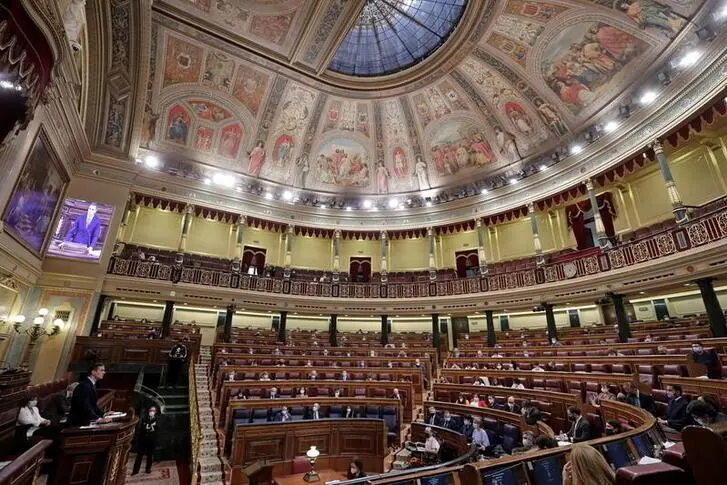PHOTO
Spain's fragmented parliament on Thursday gave the first nod of approval to the minority government's 2023 budget bill, taking it through to the next stage of debate and raising the chances of the spending plan being approved before next year.
The draft budget, which includes strong social spending, comes ahead of national and regional elections next year and is partly aimed at containing the rise of populism amid galloping inflation and general economic angst.
By 186-159 votes, with three abstentions, the lower house rejected proposals from the opposition parties to send back the draft budget submitted by Socialist Prime Minister Pedro Sanchez's leftist coalition government three weeks ago.
This is one of the best results so far in parliament for this administration, which took over in early 2020 ending a long period of political instability that kept budgets from being approved on time and triggered consecutive snap elections.
The Socialists and their junior ally, the hard left Unidas Podemos, have to rely on smaller regional parties, such as Catalonia's pro-independence ERC, to approve legislation.
It also envisages record investment in infrastructure and green energy using EU pandemic recovery funds. Controversial taxes on banks and energy companies, from which the state expects to collect up to 3.5 billion euros, are included.
Some experts, such as the independent public accounts watchdog AIREF, have criticised the budgeted revenue and expenditure forecasts as the plan does not make clear whether an anti-inflation aid package already in place will be extended into 2023.
Spain's growth should slow down to 2.1% from this year's projected 4.4%, according to the document, although the Bank of Spain has recently slashed its 2023 growth forecast to 1.4%.
(Reporting by Belén Carreño, editing by Andrei Khalip)





















